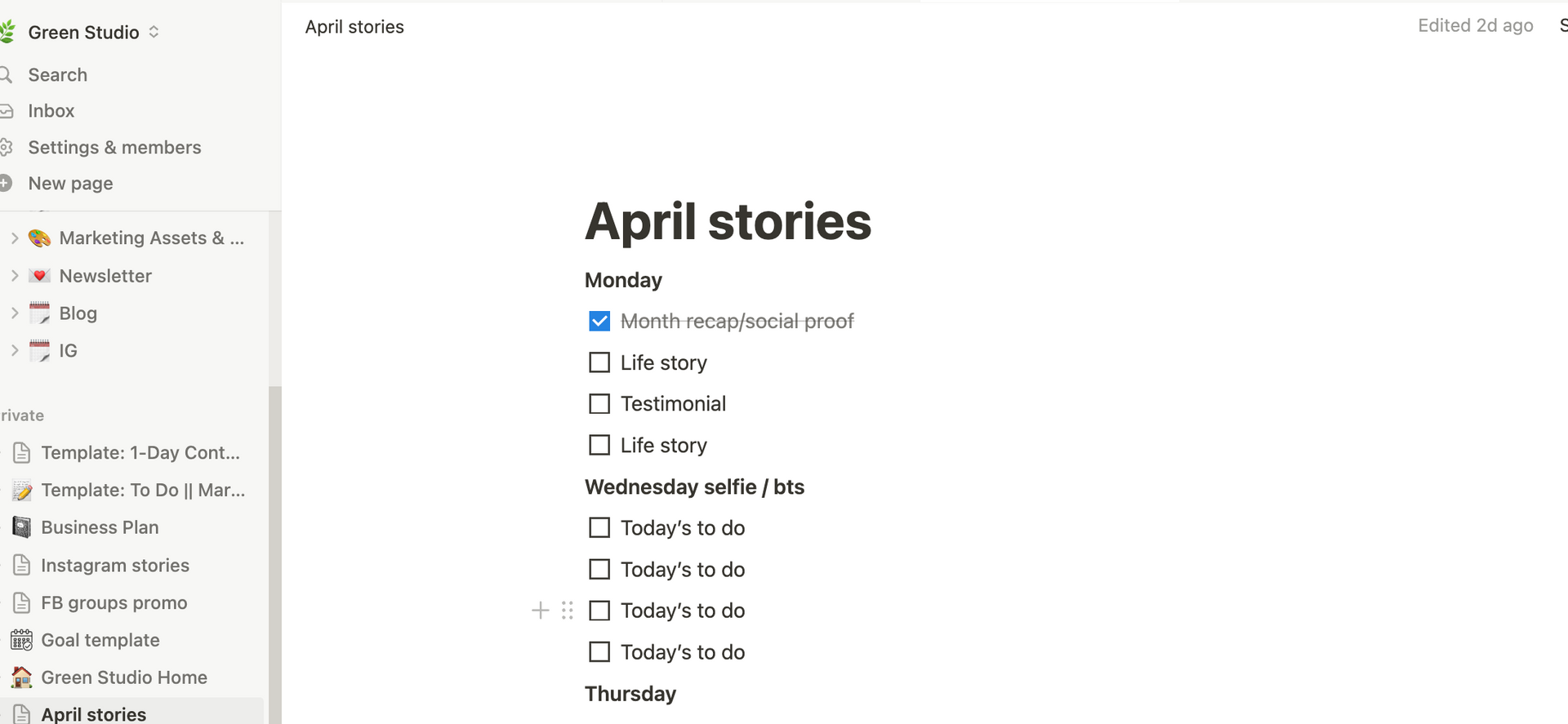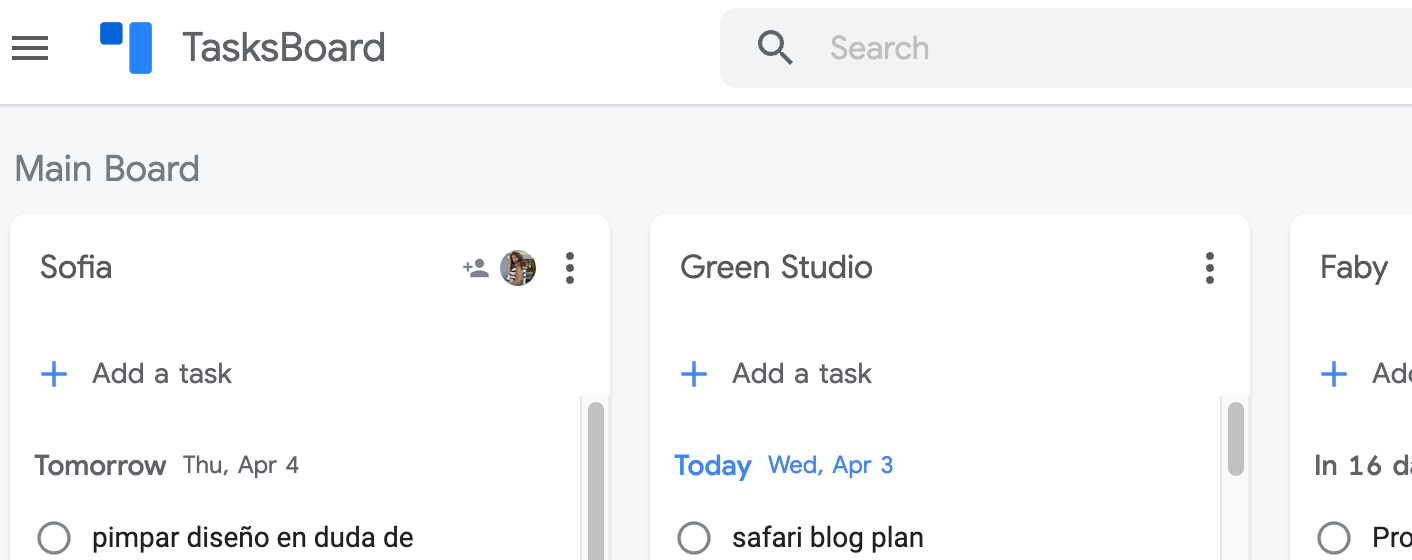How to set daily and weekly goals for your coaching business
Learn how to stay focused, overcome procrastination, and turn your goals into action with this guide on setting daily and weekly goals for your conscious and purpose-driven business.
If we haven't met before, I'm Natalia, the founder of this web design and strategic copywriting agency. I specialize in helping industry leaders launch websites that reflect their true essence, attract dream clients, and give them the confidence to stand out in their industry. Today, I want to share with you some valuable insights on how to set daily and weekly goals for your business.
Setting goals is crucial for any business owner or freelancer. However, many struggle with staying focused, dealing with procrastination, and feeling stuck when it comes to achieving long-term goals. That's why it's important to have a system in place that helps you break down your goals into actionable steps and keeps you accountable along the way.
In this blog post, we will explore different strategies to help you organize your tasks on a daily, weekly, and long-term basis. By implementing these techniques, you will be able to plan 12 months of achievable goals, organize your quarterly plans and monthly tasks effectively, and turn your weekly tasks into actionable steps for all your marketing efforts.
What is a daily task goal?
A daily task goal is a specific objective that you set yourself to accomplish within a day. It can be a small action step towards a larger goal or a standalone task that needs to be completed. Daily task goals help you stay focused and make progress consistently.
To start setting daily task goals, first identify your top priorities for the day. These are the tasks that align with your overall business objectives or contribute directly to your current projects. Write them down and allocate time slots throughout the day to work on each task.
How to organize your weekly tasks
Organizing your weekly tasks is essential for maintaining productivity and making steady progress. Here are some steps to help you stay organized:
1. Review your goals:
Begin by reviewing your long-term and monthly goals. This will give you a clear understanding of what needs to be accomplished during the week.
2. Prioritize:
Determine which tasks are most important for the week ahead. Focus on those that align with your overall business strategy or have impending deadlines.
3. Break tasks down:
Divide larger tasks into smaller, manageable subtasks. This will make them less overwhelming and easier to tackle throughout the week.
4. Create a schedule:
Allocate specific time slots for each task in your weekly schedule. Be realistic about how much time you need for each task and consider any external factors that may affect your availability.
5. Track progress:
Regularly review your progress throughout the week and make adjustments as needed. Celebrate small wins and use any setbacks as learning opportunities for improvement.
How to set personal and professional goals
Setting personal and professional goals is essential for maintaining a healthy work-life balance and achieving overall fulfillment. Here's how you can set both types of goals effectively:
Personal Goals:
Reflect on what matters most to you outside of work. Identify areas of personal growth, such as health, relationships, hobbies, or self-care. Set specific, measurable, achievable, relevant, and time-bound (SMART) goals in these areas.
Professional Goals:
Consider your long-term vision for your business or career. Define clear objectives that align with this vision and contribute to your professional development. Break these goals down into smaller milestones to make them more manageable.
Find Alignment:
Ensure that your personal and professional goals complement each other rather than conflicting. Seek ways to integrate personal growth into your business journey and vice versa.
Regular Evaluation:
Regularly assess your progress towards both personal and professional goals. Adjust them as necessary based on changing circumstances or new insights.

How to set long-term marketing goals for your coaching business
Setting long-term marketing goals is crucial for the success and growth of your business. Here's a step-by-step process to help you set effective long-term marketing goals:
1. Define your objectives:
Start by clarifying what you want to achieve through your marketing efforts. This could be increasing brand awareness, generating leads, boosting sales, or expanding into new markets.
2. Identify key metrics:
Determine which metrics are most relevant to measure the success of your marketing goals. These could include website traffic, conversion rates, social media engagement, or customer retention.
3. Set specific targets:
Establish specific targets for each key metric based on your business objectives. Make sure these targets are realistic and aligned with your available resources.
4. Break goals down:
Divide your long-term marketing goals into smaller milestones that can be achieved within a defined timeframe. This will make them more manageable and easier to track.
5. Create an action plan:
Develop a detailed action plan outlining the strategies and tactics you will implement to reach your marketing goals. Assign responsibilities, set deadlines, and allocate resources accordingly.
Turn your long term goals into monthly and weekly tasks:
To turn your monthly goals into actionable weekly tasks, follow these steps:
1. Review your monthly goals:
Start by revisiting your monthly goals and understanding what needs to be accomplished within the month.
2. Prioritize:
Identify the most important tasks that need to be completed each week in order to achieve your monthly goals.
3. Allocate time slots:
Assign specific time slots in your weekly schedule for each task. Be mindful of any dependencies or time constraints that may impact their completion.
4. Track progress:
Regularly review your progress towards achieving your monthly goals throughout the week. Adjust your weekly tasks as necessary to stay on track.
Examples of daily goals:
Here are some examples of daily goals that can help you stay focused and productive:
1. Write and publish a blog post.
2. Engage with your audience on social media.
3. Research and reach out to potential clients.
4. Attend industry-related webinars or events.
5. Update your website content or design.
Apps for keeping track of your daily goals:
To help you stay organized and track your daily goals, consider using these apps:
1. Google Tasks:
A simple and intuitive task management app that syncs across devices.
2. Notion:
A versatile productivity app that allows you to create custom workflows and track progress.

3. Trello:
A visual project management tool that helps you organize tasks and collaborate with team members.

Setting daily and weekly goals is a powerful strategy for staying focused, overcoming procrastination, and achieving long-term success in your business.
By organizing your tasks effectively, setting personal and professional goals, breaking down long-term goals, and turning them into actionable steps, you'll be able to make consistent progress towards your objectives.
Remember, goal-setting is an ongoing process that requires regular evaluation and adjustment. Stay committed to your goals, track your progress diligently, and celebrate each milestone along the way. With dedication and a clear plan in place, you'll be well on your way to accomplishing great things in your business.

* AI Disclosure: This content may contain sections generated with AI with the purpose of providing you with condensed helpful and relevant content, however all personal opinions are 100% human made as well as the blog post structure, outline and key takeaways.
* Affiliate Disclosure: Some of the links on www.nataliamaganda.com may contain affiliate links meaning that I will get a commission for recommending products at no extra cost to you.
WELCOME
Hello! I'm Natalia. Latina, web design expert for mental health professionals.
I help ambitious life coaches, therapists and holistic leaders amplify their magic, gain visibility, and simplify their marketing efforts through strategic web design and content.

Need a new website? Book a free power hour
What we will talk about: The best website strategy for your unique private practice or coaching business
Launch a website and grow your traffic in the next 12 months

Slide title
Write your caption hereButton
Slide title
Write your caption hereButton
Slide title
Write your caption hereButton
Slide title
Write your caption hereButton
Slide title
Write your caption hereButton
Slide title
Write your caption hereButton
Slide title
Write your caption hereButton
If you loved this post you're gonna love these:
BTW, I'm Natalia
Web design expert and SEO nerd
I’ve built an online business which has allowed me to double my income, and quit my full time job all thanks to one thing!
MY WEBSITE!
After serving +100 clients and students across several industries, handling blogs and writing professional copy for clients, I know the ins & outs of building a website that attracts and writing content that converts.
How much should your website & a sustainable traffic plan that brings in monthly leads be costing you as a private practitioner or holistic coach?
Join my slow Saturday newsletter
A weekly reminder to slow down, enjoy life and build your mindful business one day at a time.
How much should your website & traffic plan be costing you for getting monthly leads ?

Bilingual strategic web designer for mental health professionals, life coaches & holistic practitioners. We are located in Mexico serving USA & Worldwide. Contact | Become a collab partner | Become an affiliate or referral
Natalia Maganda - Privacy Policy











